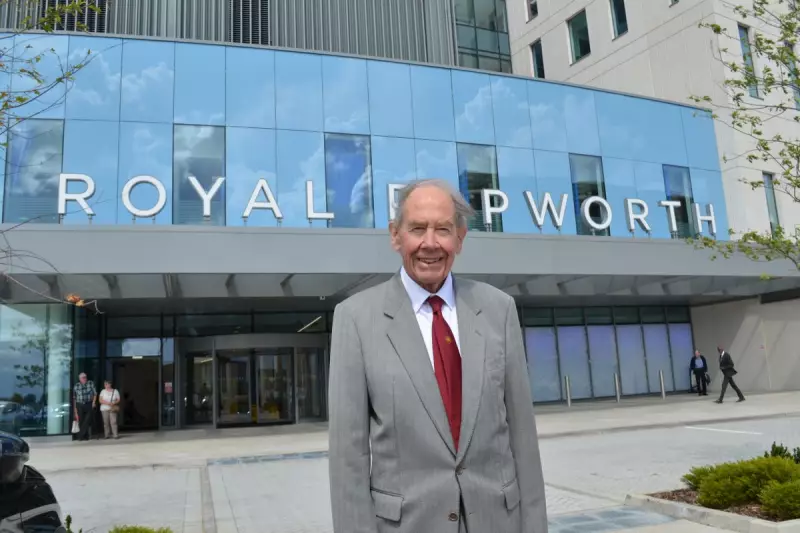
The pioneering surgeon who led the United Kingdom's first successful human heart transplant has died peacefully at the age of 93.
Sir Terence English passed away at his home in Oxford on Sunday, leaving behind an extraordinary legacy in the field of cardiac surgery. His groundbreaking work in 1979 ended a decade-long moratorium on heart transplants in the UK and paved the way for modern transplant medicine.
From Mining Engineering to Medical Pioneer
Sir Terence's journey to becoming one of Britain's most celebrated surgeons was unconventional. Born in South Africa in October 1932, he initially studied mining engineering at university in Johannesburg before making the life-changing decision to switch to medicine at Guy's Hospital in London.
His interest in heart transplantation developed after he moved to Cambridge and began working at what was then the Royal Papworth Hospital in the village of Papworth Everard. He would remain at the hospital from 1972 until his retirement in 1995.
Overcoming a Decade of Failure
When Sir Terence began his transplant work, the UK's history with heart transplantation was bleak. Three previous attempts in 1968 and 1969 had all ended tragically, with patients surviving for just 45 days, two days, and 107 days respectively. None of them ever left the hospital.
With survival rates showing no signs of improvement, authorities imposed a moratorium on heart transplantation that would last for ten years. Sir Terence faced significant scepticism from the medical establishment about reviving the procedure.
Determined to succeed where others had failed, he made numerous trips to California to study a heart transplant programme that was achieving better results. He brought this valuable knowledge back to Cambridge, determined to establish a successful programme in Britain.
In a 2019 interview, Sir Terence recalled the pressure he was under: "I'd been turned down by various transplant bodies and had been met with an awful lot of criticism, so we knew this was likely to be the last chance. I very much had my back to the wall."
The Historic Breakthrough
Sir Terence's first heart transplant attempt at Royal Papworth Hospital in January 1979 was unsuccessful. Undeterred, he prepared for a second attempt.
In August 1979, he performed the operation that would change British medical history. His patient was Keith Castle, a 52-year-old builder from London who was a smoker with peripheral vascular disease and a duodenal ulcer.
Reflecting on his choice of patient, Sir Terence noted: "Not the best of candidates you might think, but what always struck me about Keith was that he was a survivor."
The operation proved triumphant. Against the odds, Mr Castle lived for five years after his transplant, marking the first long-term success for heart transplantation in the UK and validating Sir Terence's persistence and surgical skill.
A Lasting Legacy in Medicine
Sir Terence's pioneering work didn't stop with that single success. In 1984, working alongside Professor John Wallwork, he performed Europe's first successful combined heart-lung transplant.
His contributions to medicine and surgery were formally recognised in 1991 when he was knighted. After retiring in the mid-1990s, he later moved to Oxford.
Sir Terence is survived by his wife, Judith, his four children, and eight grandchildren. In a statement released by Royal Papworth Hospital, one of his daughters, Mary, expressed that she and her siblings were "immensely proud of what dad did."
The hospital where he made medical history has since moved from Papworth Everard to a new site in Cambridge in 2019, but the legacy of Sir Terence English's courage and determination continues to inspire the medical community and give hope to countless patients.






